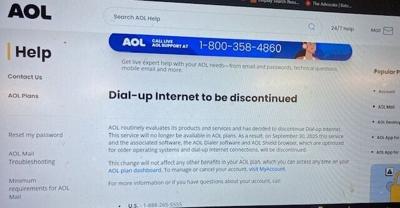I've been an early adopter of technology for much of my life.
I don't catch all new technology as soon as it pops up, but I jump on some of it as soon as I can. I had the great fortune of being a beta tester decades ago.
I wasn't special. They clearly included people who didn't know what the heck they were doing.
At other times, I had to pay to play. And sometimes that was expensive. I didn't always make the move to pull out some cash or plop down a credit or debit card.
Telephone answering machines were commercially available when I was a child. I had no job, no income and I relied on my parents for my room and board, clothes, meals and an allowance.
Besides, those machines cost several hundred dollars at that time. By 1980, the cost had dropped below $500. You could get one for $200-$300. If you wanted a machine with extra special features, that cost you more. As I asked questions, I quickly upsold myself. One had a cool recording tape for an outgoing message, and I could change it from anywhere in the world. Another had a hand-held remote control device. About the size of some beepers (look it up, youngsters), it could send a signal to a home answering machine that would recognize the sound and you could connect and get recorded messages before returning home.
I had to have all of that. And more. I paid top dollar. I bought one of the bulky, fancy machines for more than $500.
My investment paid off.
The very first message I retrieved remotely with my hand-held device was from one of the top editors at the big city daily. Jim Naughton had seen my work at a smaller daily newspaper. He wanted to talk with me. I wasn't at home when he called. Actually, I was walking distance from his office in Center City Philadelphia. Something told me to try out my new remote, so I stopped at a telephone stall, pushed in my coins, called my number and pressed my remote to send a signal to get my first message.
There were several other steps, of course, but I got a reporting job at a major city newspaper with a national reputation at 25 years old. That was 1980.
About a decade later, in 1991, I read about something called America Online. For a price, you could use your telephone to connect to someone — or a website. In America. Online.
I got an AOL account because I had to have it. I'm a gregarious, outgoing guy, and I like to be connected. Broadly. Across America. In person. By text. By phone. By FaceTime. Online.
Those of you of a certain age know the email extension aol.com. Youngsters, back in the 1990s, AOL was the best and only email game. There were more than 9 million email accounts by the late 1990s.
Now, more than three decades later, AOL is dropping its dial-up internet service.
I'm sure you're wondering who the heck is still using a modem and dial-up service.
The answer: Lots of people. Just not many compared to those of us with first-world problems.
In Louisiana, for instance, according to American Census data, there were about 15,800 households with dial-up subscriptions and no other type of internet subscription connection in 2013. By 2023, that number had fallen to 1,240 households.
Broadband and mobile broadband have made modem dial-up service obsolete in much of our state and the nation. I was an early adopter of what was originally America Online. I got excited about connecting to the internet and communicating with family and friends. Mark Lewers, my 1990s tech guru friend, set me up with a new computer, a subscription and an AOL email address I have to this day. Don't judge me. I have other email addresses.
With the introduction of cable modems and digital subscriber lines (DSL) in the 1990s, there was a greater need for much faster service than what could be provided by the old school AOL discs that the company sent to Blockbuster movie stores to entice more people to give them — and the internet — a try. It worked. They went from hundreds of subscribers to millions. As AOL succeeded, competition got tougher. Broadband took off in the 2000s. I jumped on that tech wagon, too. Bye-bye dial-up.
I left dial-up so long ago that I have to use a search engine to hear the screechy noises.
Like so many new technologies, there comes a time when it's time for them to give way to a better, faster, younger version of themselves — or something totally new.
I can't imagine AOL dial-up "talking" to AI or ChatGPT.
















